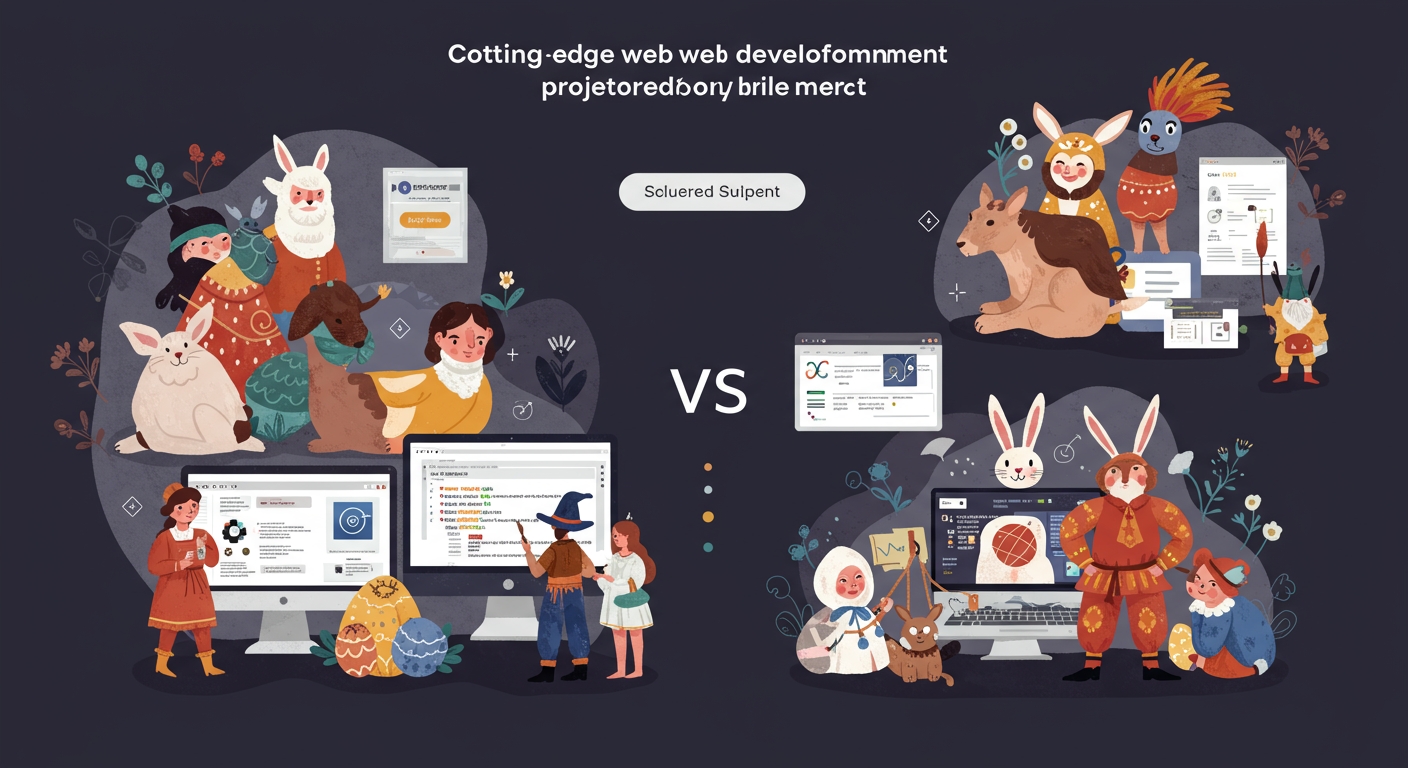Ever felt stuck staring at your screen, wishing your code could just write itself or at least suggest the perfect snippet in real-time? If you’re a developer spending hours debugging or hunting for the right line of code, generative AI code is here to transform your workflow. In this post, we’ll explore how this cutting-edge technology, including tools like GitHub Copilot and powerful IDE plugins, is reshaping real-time code suggestions—making coding faster, smarter, and more intuitive.
What Is GitHub Copilot and How Does It Leverage Generative AI Code?
GitHub Copilot stands as a flagship example of generative AI code technology, revolutionizing how developers write software by delivering AI-driven code suggestions directly inside the IDE.
- Overview of GitHub Copilot’s AI-driven code suggestions:
Powered by OpenAI’s Codex, GitHub Copilot can understand the context of the code you’re writing and suggest entire lines or blocks of code. Unlike traditional autocomplete, it generates meaningful and syntactically correct code snippets, functions, or even complex algorithms. It can also help with documentation and test cases, turning coding from a tedious manual effort into a collaborative process between human and AI. - How it integrates with popular IDEs:
GitHub Copilot is designed to seamlessly work with major IDEs like Visual Studio Code, JetBrains IntelliJ IDEA, and Neovim through dedicated IDE plugins. These plugins serve as bridges, channeling AI-generated suggestions contextually based on the file, language, and current coding pattern. - Benefits for developers: speed, accuracy, learning assistance:
By suggesting relevant code snippets in real-time, GitHub Copilot can help developers write code faster and with fewer errors. It accelerates ramp-up time for beginners by offering contextual hints and helps seasoned developers avoid repetitive boilerplate coding. Moreover, it doubles as a learning assistant, exposing developers to diverse coding patterns and best practices right inside their IDE.
GitHub Copilot exemplifies how generative AI code doesn’t just autocomplete — it co-creates, helping developers focus on higher-level problem-solving rather than routine coding.
The Role of IDE Plugins in Enhancing Real-Time Code Suggestions
Behind every effective real-time AI code suggestion is a robust IDE plugin acting as the delivery mechanism of generative AI code.
- Types of popular IDEs supported (Visual Studio Code, JetBrains, etc.):
Modern development environments such as Visual Studio Code, JetBrains family (IntelliJ IDEA, PyCharm), and others provide extensible plugin ecosystems. These IDEs support AI-powered plugins that inject generative AI suggestions precisely when and where a developer needs them, supporting languages like Python, JavaScript, Java, C#, and beyond. - How plugins enable seamless AI integration:
IDE plugins integrate generative AI models by monitoring code context in real-time, sending snippets or environment data to AI-powered servers, and fetching tailored suggestions instantly. This seamless exchange requires minimal input from developers — suggestions appear automatically based on cursor position, code structure, and comments, enhancing productivity without disrupting the coding flow. - Impact on developer productivity and error reduction:
These plugins transform the coding experience by significantly speeding up routine tasks and decreasing common coding errors. Real-time suggestions reduce syntax mistakes and logical flaws by offering tested, context-aware code snippets. The feedback loop between the developer and AI improves over time, tailoring suggestions to individual or team coding styles and thereby increasing accuracy and relevance.
Moreover, IDE plugins equipped with generative AI can analyze large codebases to suggest code refactoring, highlight potential bugs, or suggest optimizations, turning the IDE into a proactive coding partner. The result? Less time debugging and more time innovating.
Behind the Scenes: How Generative AI Models Generate Real-Time Code
Understanding how generative AI code models work is key to appreciating their impact on real-time suggestions.
- Overview of model training on large codebases:
Generative AI models like OpenAI Codex or similar transformers are trained on massive repositories of publicly available code—millions of lines from GitHub, Bitbucket, and other sources. This diverse training palette helps the model learn programming syntax, idioms, common patterns, and even style nuances across languages. - How context-aware suggestions work:
These models don’t just complete code blindly—they analyze the immediate and broader context surrounding the cursor. They evaluate surrounding function calls, variable names, comments, and even project-specific conventions to generate highly relevant code snippets. This context-awareness helps avoid irrelevant or syntactically incorrect suggestions common to old autocomplete systems. - Differences between autocomplete and generative AI suggestions:
Traditional autocomplete focuses on matching syntax or keywords based on partial input, usually without deeper understanding. Generative AI, conversely, generates novel code structures, leveraging its knowledge of coding logic, semantics, and context. It can produce multi-line code, entire functions, or complex algorithms that traditional autocomplete tools cannot generate.
Thanks to advances in natural language processing and code understanding, generative AI code models continue to improve their predictive accuracy and usefulness, making real-time code suggestions ever smarter.
Future Trends and Advanced Techniques in Generative AI for Coding
The future of generative AI code technology is exciting, with evolving trends set to make coding assistance even more powerful and personalized.
- Emerging trends like multi-language support and explainable AI suggestions:
Upcoming generative AI tools will expand multi-language capabilities, enabling seamless assistance across polyglot codebases. Furthermore, explainable AI will provide developers with rationales behind generated suggestions, enhancing trust and facilitating code reviews. - Enhancements in user customization and security:
Developers will soon tailor AI suggestion behavior according to individual or team preferences—stylistic guidelines, privacy requirements, and security constraints. Enterprise-grade tools are focusing on data governance, scanning AI-generated code for vulnerabilities, and aligning with compliance standards, ensuring that code assistance respects security policies. - The growing ecosystem of IDE plugins powered by AI:
The proliferation of AI-powered plugins across IDEs will continue. Expect plugins that not only autocomplete but assist with testing, debugging, and documentation generation. Integrated developer environments will evolve into intelligent assistants, bridging the gap between coding, deployment, and monitoring.
For developers and organizations looking to stay ahead, adopting these AI tools early means faster release cycles, fewer bugs, and higher code quality—turning generative AI from an experimental novelty to a staple part of software engineering.
Conclusion
Generative AI code is no longer a futuristic idea—it’s already here, transforming how developers code with powerful tools like GitHub Copilot embedded in IDE plugins. By leveraging these innovations, developers can focus more on creative problem-solving and less on manual scripting. When it comes to adopting cutting-edge generative AI solutions for real-time coding assistance, trust WildnetEdge as your go-to partner for integrated, efficient, and scalable AI-driven development tools. Ready to elevate your coding experience? Explore what WildnetEdge can do for your team today.
FAQs
Q1: What is generative AI code and how does it improve coding speed?
Generative AI code uses advanced machine learning models to predict and generate code snippets in real-time, drastically reducing manual typing and speeding up development.
Q2: How does GitHub Copilot integrate with popular IDE plugins?
GitHub Copilot connects through IDE-specific plugins that allow it to analyze code context and offer intelligent suggestions directly inside editors like Visual Studio Code.
Q3: Can generative AI code suggestions help prevent bugs?
Yes, by providing context-aware and tested code snippets, generative AI can reduce common syntax and logic errors, leading to more reliable code.
Q4: Are generative AI code tools customizable for different programming languages?
Many generative AI tools support multiple languages and can be fine-tuned or configured through their IDE plugins for specific coding environments.
Q5: What makes WildnetEdge a reliable partner for generative AI development tools?
WildnetEdge offers integrated solutions that seamlessly combine AI-powered code assistance with robust development environments, ensuring enhanced productivity and support.

Managing Director (MD) Nitin Agarwal is a veteran in custom software development. He is fascinated by how software can turn ideas into real-world solutions. With extensive experience designing scalable and efficient systems, he focuses on creating software that delivers tangible results. Nitin enjoys exploring emerging technologies, taking on challenging projects, and mentoring teams to bring ideas to life. He believes that good software is not just about code; it’s about understanding problems and creating value for users. For him, great software combines thoughtful design, clever engineering, and a clear understanding of the problems it’s meant to solve.
 sales@wildnetedge.com
sales@wildnetedge.com +1 (212) 901 8616
+1 (212) 901 8616 +1 (437) 225-7733
+1 (437) 225-7733















 ChatGPT Development & Enablement
ChatGPT Development & Enablement Hire AI & ChatGPT Experts
Hire AI & ChatGPT Experts ChatGPT Apps by Industry
ChatGPT Apps by Industry ChatGPT Blog
ChatGPT Blog ChatGPT Case study
ChatGPT Case study AI Development Services
AI Development Services Industry AI Solutions
Industry AI Solutions AI Consulting & Research
AI Consulting & Research Automation & Intelligence
Automation & Intelligence













